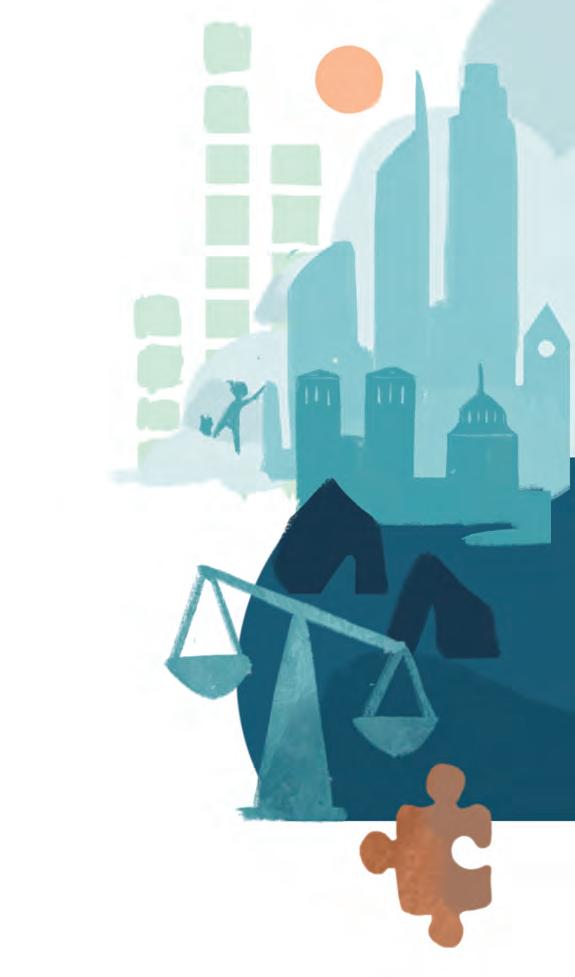
2 minute read
Seeing the Bigger Picture
According to Juliet Williams, professor of gender studies and chair of the UCLA social science interdepartmental program, the intellectually galvanizing rallying cry in her field in recent years has been the insistence that data itself is social.
“There have been those who have heralded the advent of the age of big data as one that will enable us to transcend human bias,” Williams says. “Finally, we’ll have a more direct and pure access to the truth of how the world works, so that we can solve problems non-ideologically. But, of course, what has quickly been discovered is that big data as often as not mirrors the biases of the social world.”
Advertisement
UCLA social scientists have been at the forefront of questioning big data practices in industry, government and finance, as well as generating new data science projects that serve equity and justice. One such example is the Million Dollar Hoods effort co-led by UCLA history, African American studies and urban planning professor (and MacArthur “genius grant” recipient) Kelly Lytle Hernández. Million Dollar Hoods aims to finally put an accurate price tag on mass incarceration by tracking, neighborhood by neighborhood, how much public money is spent locking up Los Angeles residents.
Professor of sociology and American Indian studies Desi Small-Rodriguez has also made headlines with her work on what she calls Indigenous “statistical erasure” through the U.S. census. Small-Rodriguez’s research tells an instructive story of how state power is expressed through data collection and analysis and explores how the nations might someday achieve the goal of “data sovereignty.”
One of the great promises of big data is that it can bring together previously siloed information for combined analysis by superefficient algorithms. Ironically, however, the academic conversation around big data has itself long been siloed. Williams and her colleagues, including Darnell Hunt, UCLA’s executive vice chancellor and provost and former dean of social sciences, addressed this split with a new set of curricular offerings meant to bring data science, humanities and social science onto common ground at the UCLA College.
“We started to notice that students in fields like history, gender studies, Chicano studies and sociology had a very strong interest in social justice, but they weren’t necessarily taking any statistics beyond the minimum,” Williams says. “At the same time, we had lots of students in economics and political science who were getting very sophisticated quantitative and data-related training, but weren’t necessarily being given the theoretical concepts, tools and frameworks to query the social origins and impacts of data.”
Thus was born, in 2021, the UCLA Mellon Social Justice Curriculum, a $5-million investment in expanded curricular offerings aiming to bridge the gap between social inquiry and data science. The grant has allowed for the hiring of five new faculty and the development of a freshman-year cluster course on data, society and social justice.
Williams, who serves as faculty co-lead for the initiative, and her colleagues are also working on a one-year data and society master’s degree track and an undergraduate data justice scholarship.
“We want to make sure, as we’re training 21st-century UCLA graduates, that they have the full repertoire of tools necessary to realize transformative change,” Williams says. “We’re recognizing that as much as you have to have fluencies in social theory, you also have to understand the basics of how statistics work. You have to be able to work with data sets, because that’s increasingly the language in which public policy is being debated and formulated.”










